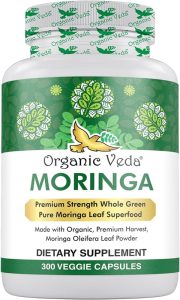Eggs are a nutrient-dense food rich in protein, vitamins, and minerals. A well-balanced feeding regimen supports optimal growth and development in poultry.
Eggs are a nutritional powerhouse, providing essential nutrients for chickens’ health and egg production. Proper feeding practices ensure birds receive adequate nutrients for overall health. By understanding the nutritional value of eggs and implementing a suitable feeding regimen, poultry farmers can promote strong, healthy birds and high-quality egg production.
This comprehensive approach not only benefits the birds’ well-being but also contributes to a sustainable and productive poultry operation. A well-managed feeding program is crucial for maximizing the nutritional benefits of eggs and supporting the overall success of a poultry business.
The Nutritional Powerhouse: Eggs
When it comes to nutrition, eggs are a powerhouse of essential nutrients. These humble ingredients pack a punch when it comes to providing the body with what it needs to thrive.
A Source Of Essential Nutrients
Eggs are rich in essential nutrients like vitamin D, which is crucial for bone health, choline, an important nutrient for brain function, and selenium, a powerful antioxidant that supports immune function.
An Excellent Source Of Protein And Amino Acids
With high-quality protein and a range of essential amino acids, eggs are a superfood for muscle growth, repair, and overall health.
High In Healthy Fats: A Balance Of Omega-3 And Omega-6
Eggs provide a healthy balance of omega-3 and omega-6 fatty acids, supporting heart health, brain function, and reducing inflammation in the body.
Loaded With Vitamins And Minerals
- Rich in riboflavin and Vitamin B12 for energy production.
- Iron and folate for blood health and DNA synthesis.
- Zinc and potassium for immune support and electrolyte balance.
Eggs And Heart Health
Eggs have long been a staple in many diets due to their impressive nutritional profile. Let’s delve into the impact of eggs on heart health, focusing on key aspects such as cholesterol levels, heart disease risk, and the role they play in raising HDL cholesterol.
Egg Consumption And Cholesterol Levels
High cholesterol levels have been a concern for many, with the misconception that egg consumption leads to elevated cholesterol. However, research shows that the cholesterol in eggs does not significantly impact blood cholesterol levels in most individuals.
The Impact Of Eggs On Heart Disease Risk
Contrary to previous beliefs, studies suggest that moderate egg consumption does not increase the risk of heart disease. In fact, eggs are a rich source of nutrients that can contribute to overall heart health.
The Role Of Eggs In Raising Hdl Cholesterol
Eggs can play a crucial role in raising HDL (“good”) cholesterol levels in the body. HDL cholesterol helps remove LDL (“bad”) cholesterol from the arteries, reducing the risk of heart disease.
Eggs For Weight Management
Discover how incorporating eggs into your daily diet can be beneficial for weight management. With their high protein content and essential nutrients, eggs make a satisfying addition to your feeding regimen. Explore the nutritional value of eggs and start enjoying their weight-loss benefits today.
The satiating power of eggs makes them an excellent choice for weight management. When it comes to feeling full and satisfied, eggs are a perfect option. Not only are they low in calories, but they are also packed with protein and essential nutrients. Incorporating eggs into your diet can help curb your appetite, control cravings, and ultimately support your weight loss goals. In this article, we will explore the nutritional value of eggs and the optimal feeding regimen to maximize their benefits for weight management.The Satiating Power Of Eggs
Eggs have long been recognized for their satiating properties. Their high protein content promotes feelings of fullness and reduces the urge to snack between meals. In fact, studies have shown that eating eggs for breakfast can increase feelings of satisfaction and lead to a reduced calorie intake throughout the day. This is due to the combination of protein and healthy fats found in eggs, which help keep you feeling satisfied for longer. If you’re looking to shed a few pounds, incorporating eggs into your daily diet can be a game-changer.Eggs For Breakfast: A Boost To Metabolism
Starting your day with eggs can also give a significant boost to your metabolism. Research has shown that the thermic effect of food, which refers to the increase in energy expenditure after a meal, is higher when consuming eggs compared to other breakfast options. This means that your body needs to burn more calories to digest and process the nutrients in eggs, resulting in a slightly higher metabolic rate. By jumpstarting your metabolism early in the day, you set yourself up for efficient calorie burning throughout the day.The Role Of Eggs In A Balanced Diet
In addition to their satiating and metabolism-boosting properties, eggs play a crucial role in a balanced diet. They are an excellent source of high-quality protein, which is essential for muscle repair, growth, and maintenance. Eggs are also rich in vitamins and minerals, such as vitamin D, vitamin B12, and selenium, all of which contribute to overall health and wellbeing. By incorporating eggs into your daily meal plan, you ensure that you’re getting a wide range of nutrients necessary for optimal functioning of your body. To make the most of eggs for weight management, it is important to incorporate them into a well-rounded feeding regimen. Pairing eggs with a variety of vegetables, whole grains, and healthy fats can create a satisfying and nutritious meal. Additionally, it is essential to practice portion control and avoid adding excessive fats or salt during the cooking process. By preparing your eggs in a healthy manner, you ensure that they remain a smart choice for weight management. Overall, eggs are a valuable addition to any weight management plan. Their satiating power, metabolism-boosting properties, and nutritional value make them an ideal choice for achieving and maintaining a healthy weight. Whether you enjoy them for breakfast, lunch, or dinner, eggs offer endless possibilities for creating delicious and fulfilling meals that support your weight loss goals. So, why not make eggs a staple in your diet and experience the benefits firsthand?
Credit: discover.texasrealfood.com
Eggs And Eye Health
Eggs are more than just a breakfast staple; they are packed with essential nutrients that contribute to overall health, including eye health. Incorporating eggs into your daily diet can provide numerous benefits for your vision, particularly in preventing age-related vision issues. Let’s explore the vision-boosting nutrients found in eggs and their role in preventing age-related macular degeneration.
The Vision-boosting Nutrients In Eggs
Eggs are rich in lutein and zeaxanthin, two powerful antioxidants that play a crucial role in maintaining eye health. These nutrients are known to accumulate in the retina and lens of the eye, where they act as a natural filter against harmful high-energy blue light. Consuming eggs regularly can help increase the levels of these essential nutrients in your body, contributing to improved vision and overall eye health.
Eggs And The Prevention Of Age-related Macular Degeneration
Age-related macular degeneration (AMD) is a leading cause of vision loss in older adults, and the consumption of lutein and zeaxanthin has been linked to a reduced risk of developing AMD. Including eggs in your diet can help protect against the progression of AMD and contribute to the maintenance of healthy vision as you age. These vision-boosting nutrients found in eggs make them an excellent addition to a well-rounded diet focused on eye health.
Incorporating eggs into a nutrient-rich diet can significantly contribute to the maintenance of healthy vision and reduce the risk of age-related eye conditions. By providing essential nutrients that support eye health, eggs prove to be a valuable addition to your daily dietary regimen.
Eggs And Brain Function
Eggs are a versatile and nutritious food that offer a myriad of health benefits, including boosting brain function. Incorporating eggs into the diet can significantly contribute to cognitive health and development. Let’s delve into the fascinating relationship between eggs and brain function to understand the importance of this dietary staple.
Choline: The Essential Nutrient For Brain Development
Eggs are an excellent source of choline, a vital nutrient that plays a significant role in brain development and function. Choline is a precursor to acetylcholine, a neurotransmitter essential for memory, mood regulation, and muscle control. The abundance of choline in eggs makes them a valuable addition to the diet, particularly during periods of rapid brain growth, such as infancy and adolescence.
Egg Consumption And Cognitive Performance
Research has shown that regular consumption of eggs can positively impact cognitive performance. Studies indicate that the nutrients found in eggs, including choline, omega-3 fatty acids, and antioxidants, can support overall brain health and enhance cognitive function. Including eggs in the diet may contribute to improved memory, attention, and problem-solving skills, making them a valuable addition to a brain-boosting regimen.
Eggs For Muscle Recovery
Eggs are not only a delicious and versatile food, but they also offer numerous benefits for muscle recovery. Whether you’re a professional athlete or a fitness enthusiast, incorporating eggs into your post-workout routine can help support muscle growth and repair. Let’s delve deeper into the nutritional value of eggs and why they make an ideal post-workout snack.
Protein Quality And Muscle Synthesis
Protein is an essential macronutrient for muscle recovery and synthesis, and eggs are packed with high-quality protein. In fact, eggs are considered the gold standard when it comes to protein quality.
Egg protein is rich in all the essential amino acids needed for muscle repair and growth. These amino acids, such as leucine, play a crucial role in stimulating muscle protein synthesis.
According to studies, the leucine content in eggs is particularly important for maximizing muscle protein synthesis. This amino acid acts as a key signal for your muscles to initiate the repair and building process. By consuming eggs post-workout, you can optimize muscle recovery and gain.
Eggs As An Ideal Post-workout Snack
When it comes to choosing a post-workout snack, convenience and nutrient content are key factors. Eggs tick both boxes, making them an excellent option for muscle recovery.
One large egg contains approximately 6 grams of high-quality protein, making it a portable and protein-rich snack. The protein in eggs is not only easily digested but is also absorbed efficiently by your muscles.
Moreover, eggs provide essential vitamins and minerals that support overall recovery. They are a good source of vitamin B12, which aids in the formation of red blood cells and helps maintain a healthy nervous system.
Eggs also contain important antioxidants, such as lutein and zeaxanthin, which promote eye health and reduce inflammation. These antioxidants can help alleviate the oxidative stress caused by intense exercise, supporting faster recovery.
In addition, eggs are rich in healthy fats, including omega-3 fatty acids. These fats help reduce inflammation in the body and support cardiovascular health.
Considering their nutrient profile, convenience, and affordability, eggs are a practical choice for a post-workout snack. Whether you prefer them boiled, scrambled, or as an omelet, eggs offer a powerhouse of nutrients that aid in muscle recovery and growth.
Eggs And Pregnancy
Eggs and Pregnancy are a powerful combination that offers numerous benefits for both the mother and the developing baby. Including eggs in a balanced diet during pregnancy can provide essential nutrients required for a healthy pregnancy and fetal development.
The Benefits Of Eggs During Pregnancy
- Rich in protein to support the rapid growth of the fetus
- Contain choline essential for brain development of the baby
- Good source of vitamin D crucial for bone health
- Provide omega-3 fatty acids for brain and vision development
Eggs As A Complete Protein Source For Baby’s Development
- High-quality protein in eggs aids in cell growth and repair
- Contains essential amino acids for baby’s development
- Supports the formation of organs and tissues

Credit: discover.texasrealfood.com
Feeding Regimen: The Ideal Diet For Egg-producing Hens
Egg-producing hens require a well-balanced diet to support optimal egg production and quality. The feeding regimen for hens plays a crucial role in ensuring they receive the necessary nutrients to lay healthy and nutritious eggs. This article explores the essential components of the ideal diet for egg-producing hens, emphasizing the importance of balancing nutrient requirements, selecting the right feed types, and incorporating supplementation for robust eggshell quality.
Balancing Nutrient Requirements For Optimal Egg Production
Balancing nutrient requirements is essential for supporting optimal egg production. Hens need a diet rich in protein, carbohydrates, fats, vitamins, and minerals to lay high-quality eggs consistently. A well-balanced feed ensures that hens receive the necessary nutrients to support overall health, reproductive function, and egg development. Protein is particularly crucial for egg formation, while calcium is essential for strong eggshells.
Choosing The Right Feed Types: Organic, Free-range, Or Conventional
Choosing the right feed types significantly impacts the nutritional quality of eggs. Organic and free-range feeds often provide a more diverse range of nutrients, including omega-3 fatty acids and antioxidants that can enhance the nutritional value of eggs. Conventional feeds are also formulated to meet the nutritional requirements of hens, but the choice ultimately depends on the producer’s preferences and farming practices.
Supplementation For A Robust Eggshell Quality
Supplementation plays a vital role in enhancing eggshell quality. Adding calcium supplements to the hens’ diet ensures that they have sufficient resources to form strong and durable eggshells. Vitamin D3 supplementation also aids in the absorption of calcium, contributing to improved eggshell integrity. Moreover, omega-3 supplementation can enhance the nutritional profile of eggs and provide additional health benefits for consumers.
Incorporating Eggs Into Your Diet
Adding eggs to your daily diet is an excellent way to boost your nutritional intake while enjoying a versatile and delicious food. Whether you prefer them scrambled, fried, or poached, eggs are a powerhouse of essential nutrients that can contribute to overall health and well-being. In this section, we will explore how you can integrate eggs into a healthy meal plan and discover creative ways to cook and enjoy them.
Integrating Eggs In A Healthy Meal Plan
When it comes to incorporating eggs into your meal plan, there are numerous options to choose from. Eggs can be the star of your breakfast, lunch, or dinner, providing a great source of protein, healthy fats, vitamins, and minerals. Here are some tips to help you integrate eggs into a healthy meal plan:
- Start your day right: kickstart your morning with a satisfying and nutritious breakfast by including eggs. You can pair them with whole-grain toast and avocado for a balanced and filling meal.
- Boost your salads: add hard-boiled eggs to your salads for an extra dose of protein. They enhance the flavor and provide a filling component to keep you satisfied.
- Create balanced meals: eggs can be a part of a well-rounded lunch or dinner. Include them in dishes like omelettes, frittatas, or stir-fries alongside vegetables and whole grains for a complete and nutritious meal.
- Light snacks: prepare delicious egg-based snacks such as deviled eggs or egg salad wraps for a quick and protein-packed treat.
Creative Ways To Cook And Enjoy Eggs
When it comes to cooking and enjoying eggs, the possibilities are endless. Here are some creative ways to incorporate eggs into your meals:
- Experiment with different cooking methods: apart from the traditional fried, scrambled, or boiled eggs, try poaching, baking, or making egg muffins for a change of taste.
- Make egg-based sauces: elevate your dishes with homemade sauces like hollandaise or aioli that feature eggs as the main ingredient. These flavorful additions can transform your meals.
- Egg wraps and rolls: wrap your favorite fillings in a thin omelette or use lettuce leaves as a substitute for tortillas. This innovative twist adds variety to your meals and increases your egg consumption.
- Protein-rich desserts: eggs can be used to make delectable desserts such as custards, puddings, and meringues. These sweet treats are not only delicious but also provide a nutritious alternative to traditional desserts.
With these creative ideas, you can make the most of eggs in your diet and enjoy their nutritional benefits in a range of delightful ways. Incorporating eggs into your meal plan and exploring different cooking methods will keep your taste buds satisfied while providing your body with essential nutrients.

Credit: humanfood.bio
Frequently Asked Questions For Nutritional Value Of Eggs And Feeding Regimen
What Is The Nutritional Value Of Eggs?
Eggs are rich in protein, vitamins, and minerals, providing essential nutrients for overall health.
How Often Should I Feed Eggs To My Chickens?
Feeding eggs to chickens once or twice a week is sufficient to maintain their health and egg production.
Can Eggs Be A Complete Source Of Nutrition For Chickens?
Eggs are a valuable source of nutrition for chickens, but should be complemented with a balanced diet.
What Are The Benefits Of Including Eggs In A Chicken’s Diet?
Incorporating eggs into a chicken’s diet can enhance their feather quality, promote growth and provide essential nutrients.
Are There Any Risks Associated With Feeding Eggs To Chickens?
Feeding raw or spoiled eggs to chickens may lead to health complications, so it’s important to provide fresh eggs.
How Should Eggs Be Prepared Before Feeding To Chickens?
Eggs for chicken consumption should be cooked, crushed, and mixed with other feed to prevent pecking and egg-eating behavior.
Can Eggs Be Used As A Supplement During Molting Season?
Incorporating eggs into a chicken’s diet during molting can support feather regrowth and provide additional protein.
What Role Do Eggs Play In The Development Of Young Chicks?
Eggs offer vital nutrients for young chicks, aiding in their growth, development, and overall health.
How Do Eggs Contribute To The Overall Health Of Chickens?
The nutrients in eggs support bone strength, muscle development, and immune function, promoting overall chicken health.
What Feeding Regimen Is Ideal For Maximizing The Benefits Of Eggs?
Balancing a chicken’s diet with a mix of quality feed, supplements, and occasional eggs can optimize their health and productivity.
Conclusion
The nutritional value of eggs is unparalleled, making them a fundamental component of a well-balanced diet. Their high protein content, essential amino acids, vitamins, and minerals support optimal health and can contribute to weight management. Incorporating eggs into a balanced feeding regimen can provide numerous health benefits and add variety to meals.
Make sure to consider your specific dietary needs and consult with a healthcare professional for personalized guidance.






Be First to Comment